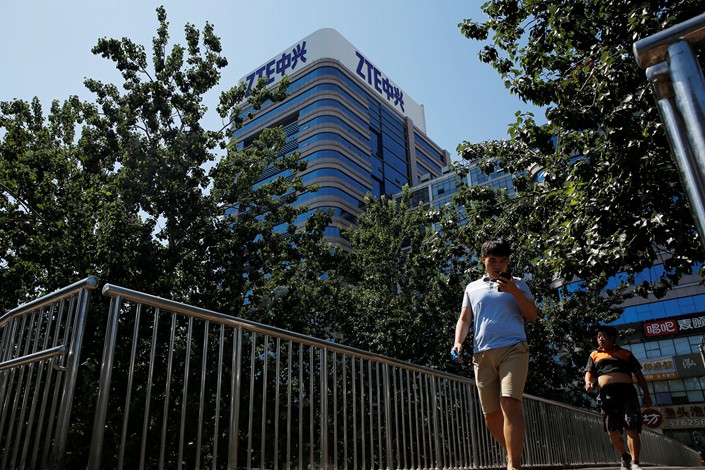Down But Not Out: ZTE Sees Light at End of the Tunnel

Embattled telecom-equipment maker ZTE Corp. said it will return to profitability in the third quarter, as it rebounds from a devastating conflict with Washington that resulted in a massive loss for the three months through June.
ZTE has been under the gun since April, after the U.S. Commerce Department determined the company violated a previous agreement punishing it for selling American-made products to Iran in violation of U.S. sanctions. Washington initially cut off ZTE from all of its U.S. suppliers, a move the company called a threat to its existence, but in July the authorities relented and reached a new deal fining the company $1 billion and forcing it to completely overhaul its management.
The company’s halt in production for much of the second quarter, which runs from April to June, showed up throughout its latest financial results released late on Thursday. Revenue for the quarter tumbled 58% to 11.9 billion yuan ($1.74 billion), or less than half the revenue from the previous quarter, according to calculations by Caixin based on the company’s half-year results. The company posted a 2.4 billion yuan loss for the period, compared with a $1.1 billion profit a year earlier.
But the company simultaneously released a forecast for the first nine months of the year, showing it will return to profitability in the current quarter. It said it expected to post a profit of between 24 million yuan and 1 billion yuan for the quarter, based on Caixin calculations of its profit projections for the first nine months of the year.
The upbeat forecast helped to lift ZTE shares, which closed up nearly 1% in Friday trade in both Hong Kong and on the Chinese mainland in Shenzhen. But the Hong Kong stock is still down about 40% from levels where it traded before the crisis began.
ZTE’s woes date back several years to when the U.S. first launched a probe into the company’s suspected sales of American-made products to Iran. But the case’s climax earlier this year has cast a spotlight on recent trade frictions between Washington and Beijing, sparked by the former’s accusations of unfair trade practices such as intellectual property theft and forced technology transfers.
The case also spotlighted the high degree of dependence on imported technology still experienced by many of China’s recently minted high-tech giants, and has led to calls in China for the country to more actively develop its own industries in core areas like software and microchips.
Contact reporter Yang Ge (geyang@caixin.com)

- 1Cover Story: China Carves Out a Narrow Path for Offshore Asset Tokenization
- 2Drownings Shake Chinese Enthusiasm for Travel to Russia
- 3Over Half of China’s Provinces Cut Revenue Targets
- 4Li Ka-Shing’s Port Empire Hit by Forced Takeover Amid Panama Legal Dispute
- 5In Depth: China’s Mutual Fund Industry Faces Overhaul After a Banner 2025
- 1Power To The People: Pintec Serves A Booming Consumer Class
- 2Largest hotel group in Europe accepts UnionPay
- 3UnionPay mobile QuickPass debuts in Hong Kong
- 4UnionPay International launches premium catering privilege U Dining Collection
- 5UnionPay International’s U Plan has covered over 1600 stores overseas






